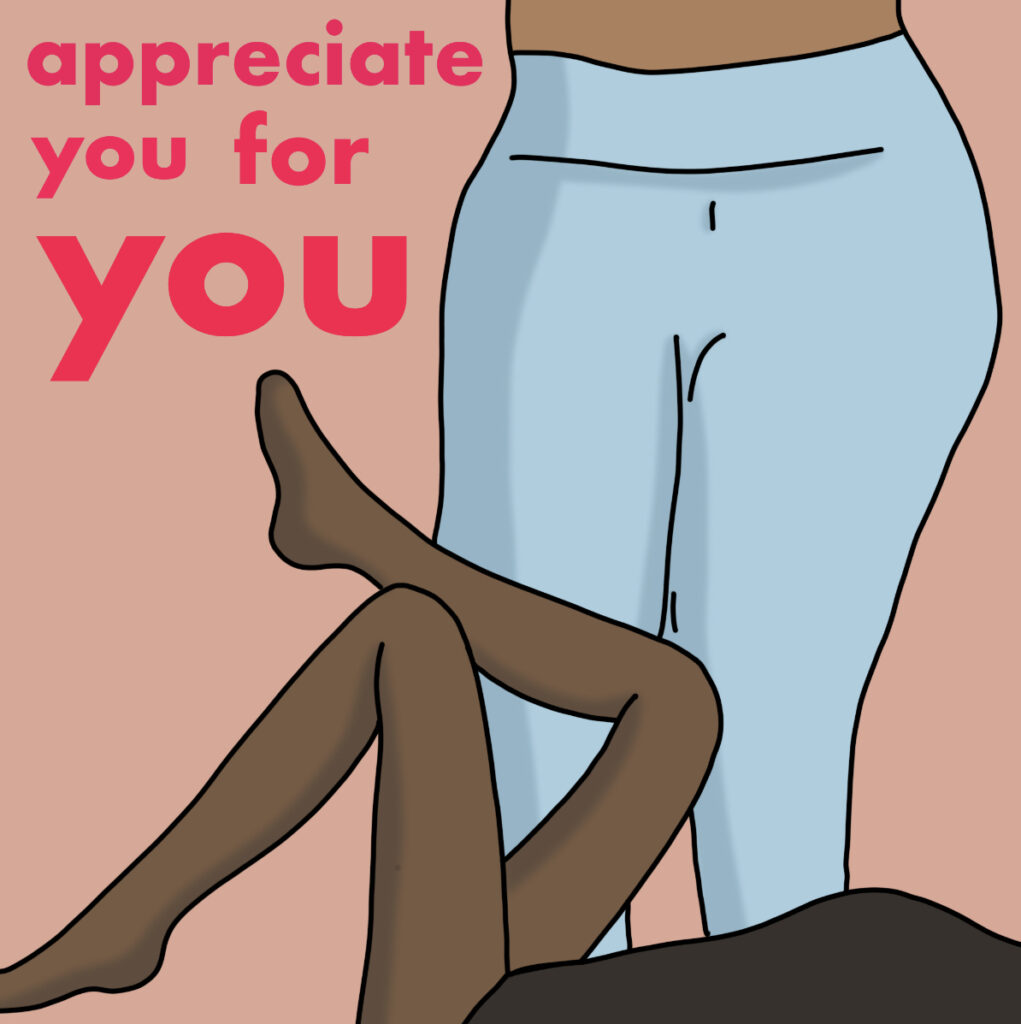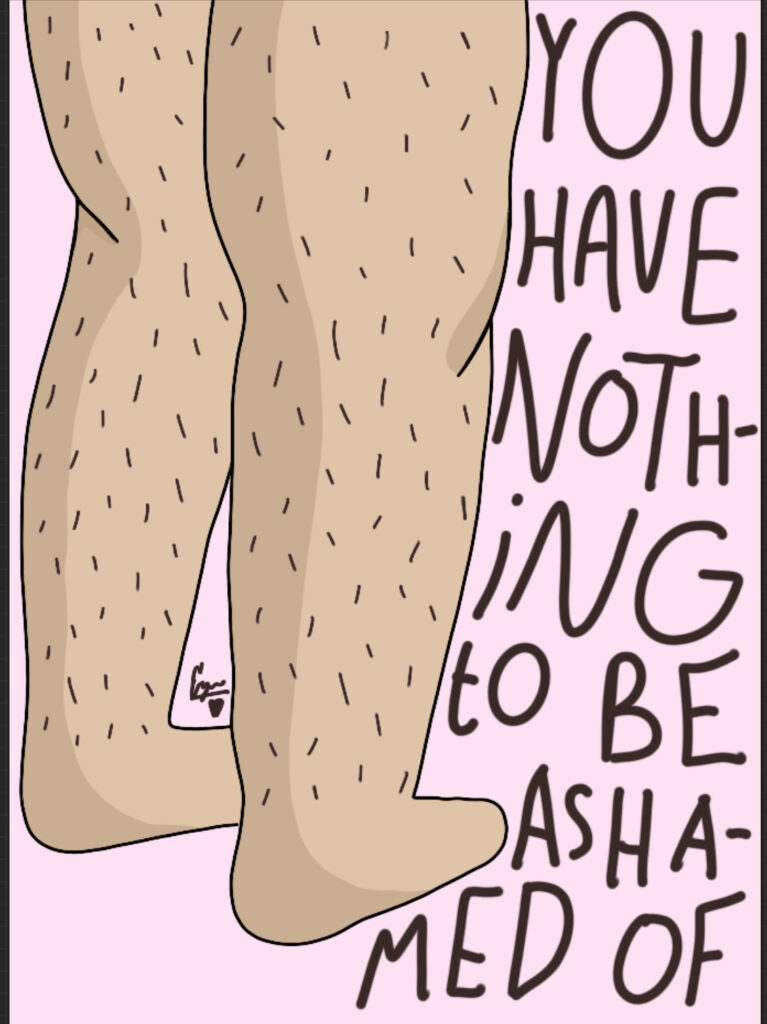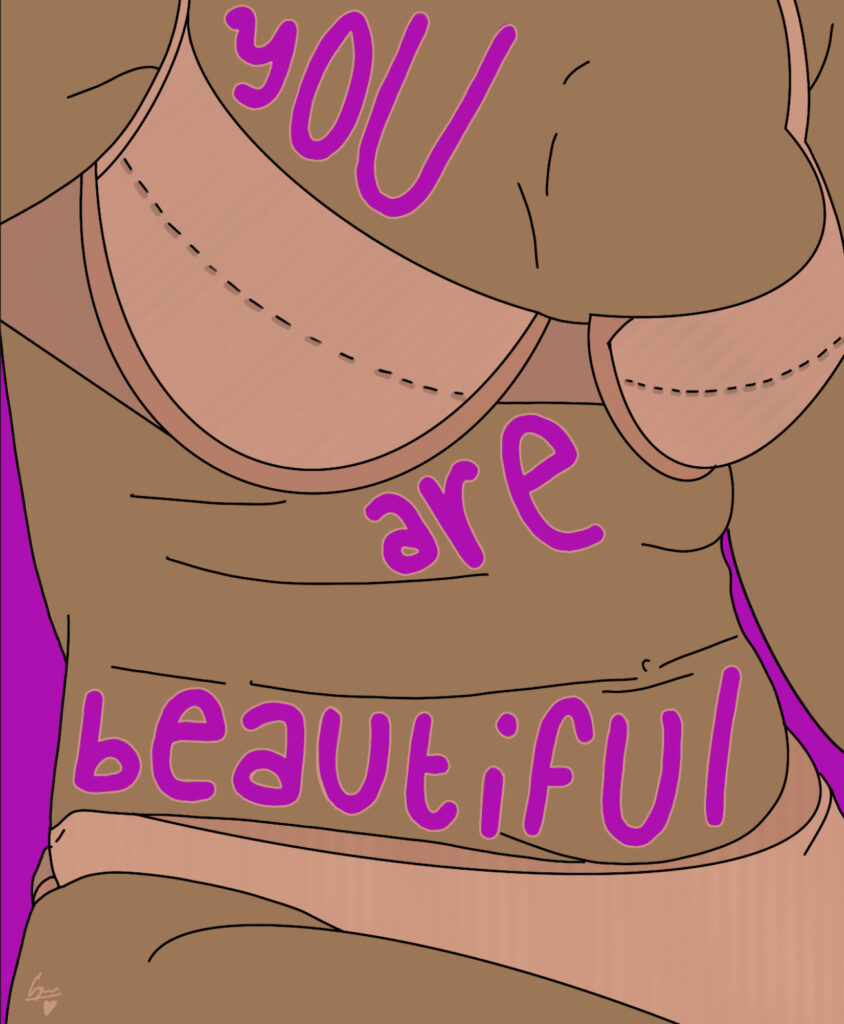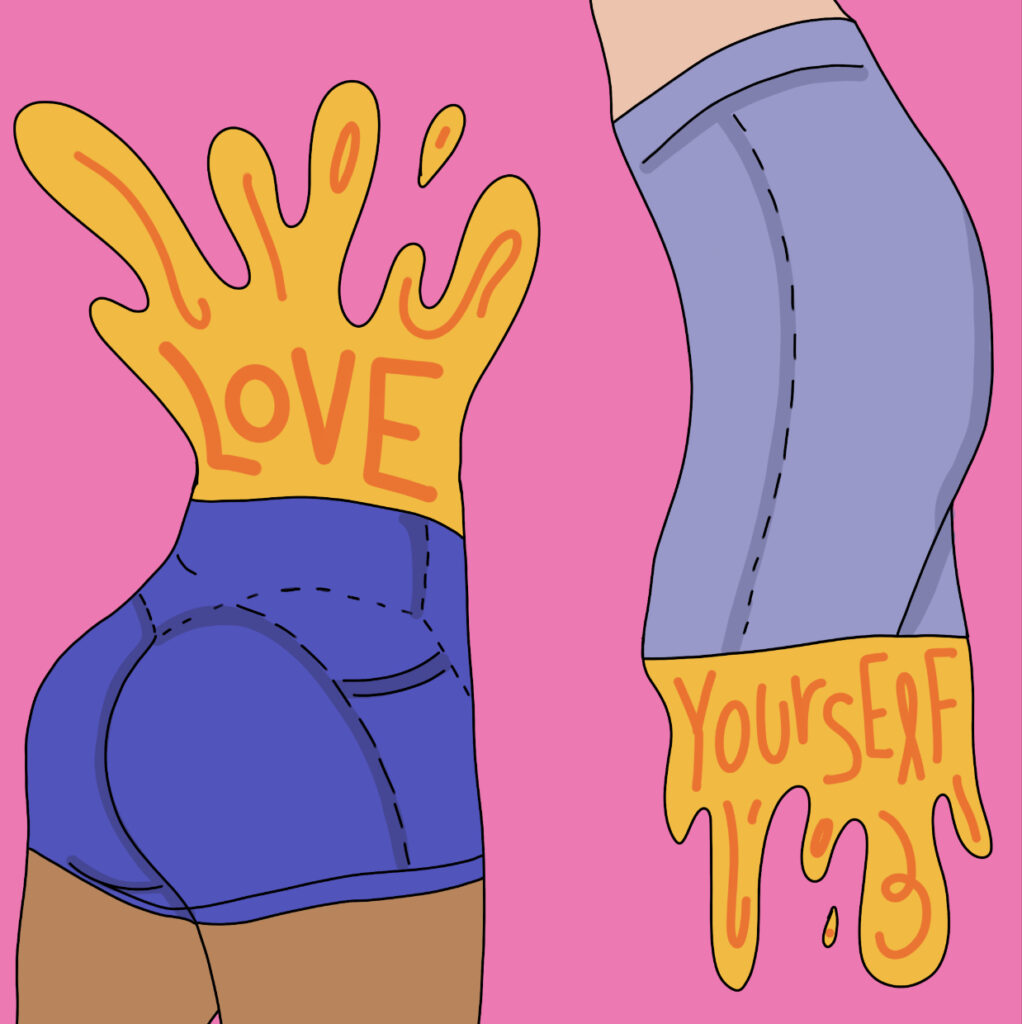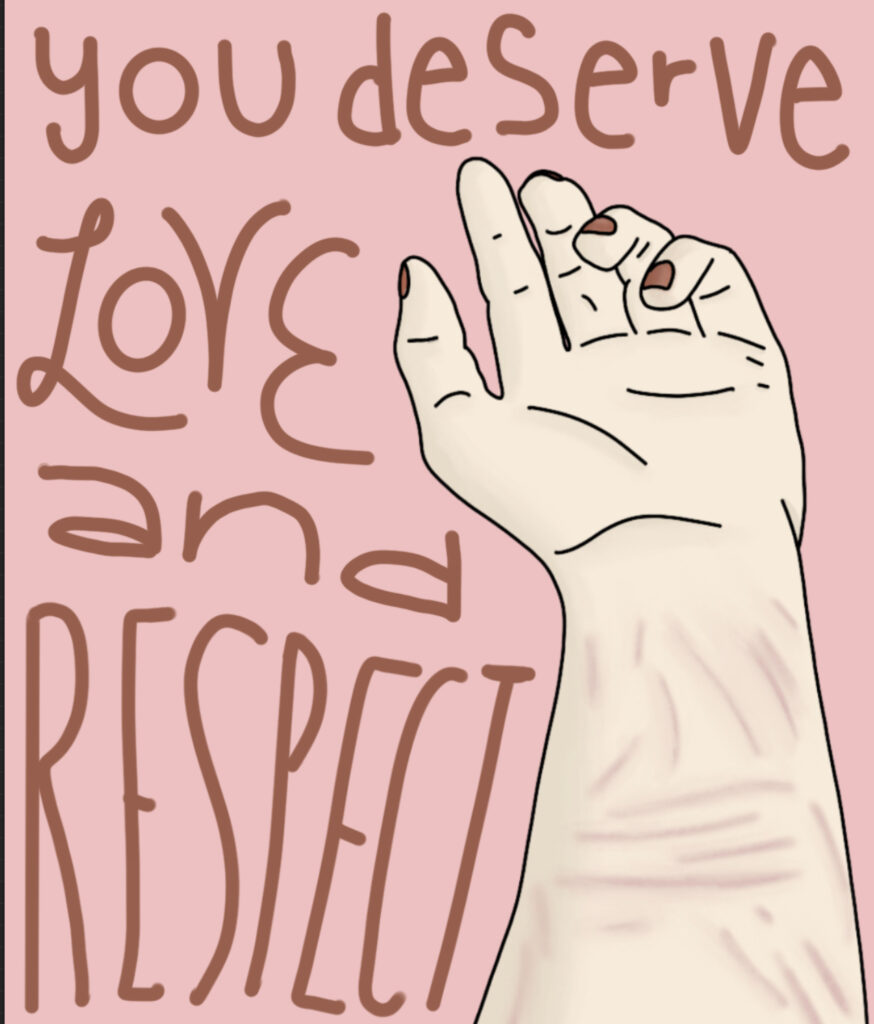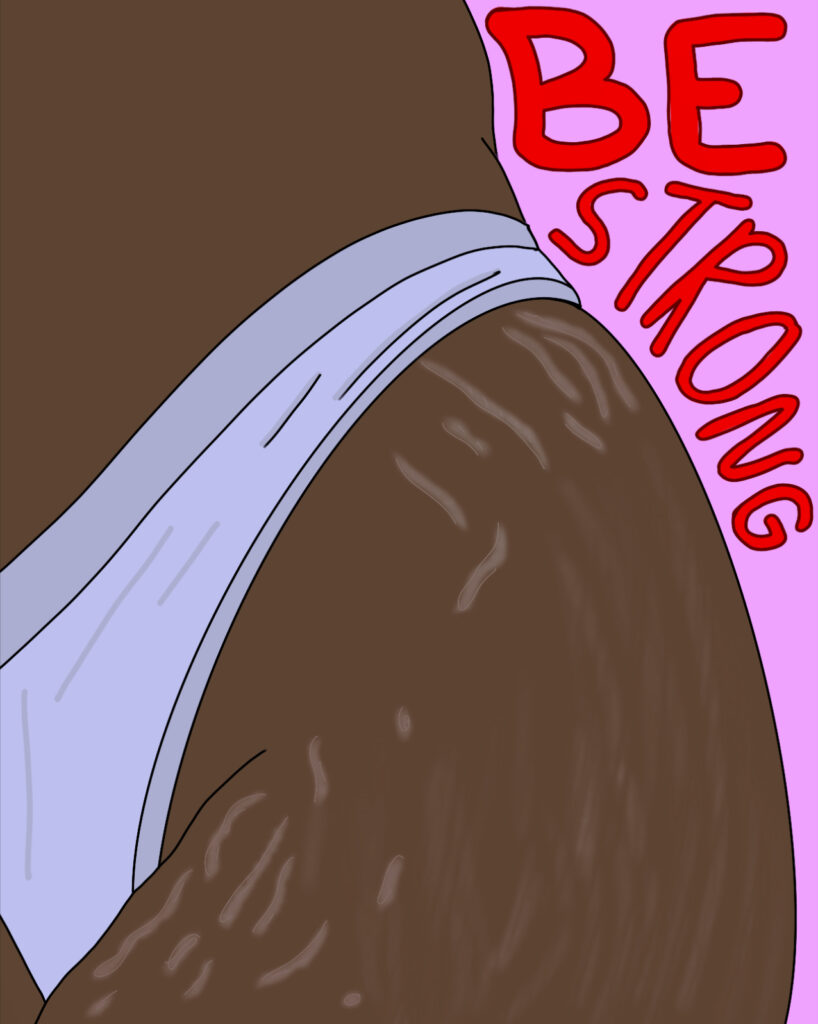Baltimore, Maryland – On a rainy Friday afternoon in early May, Eva Killingstad sat in a classroom at Roland Park Country School, diligently researching, writing and building a website on women’s reproductive health. As the school year was coming to an end, Eva and classmate, Talya Kohan-Gaffar, had decided on an education campaign as their final project for one of Roland Park’s newest classes—Changemakers.
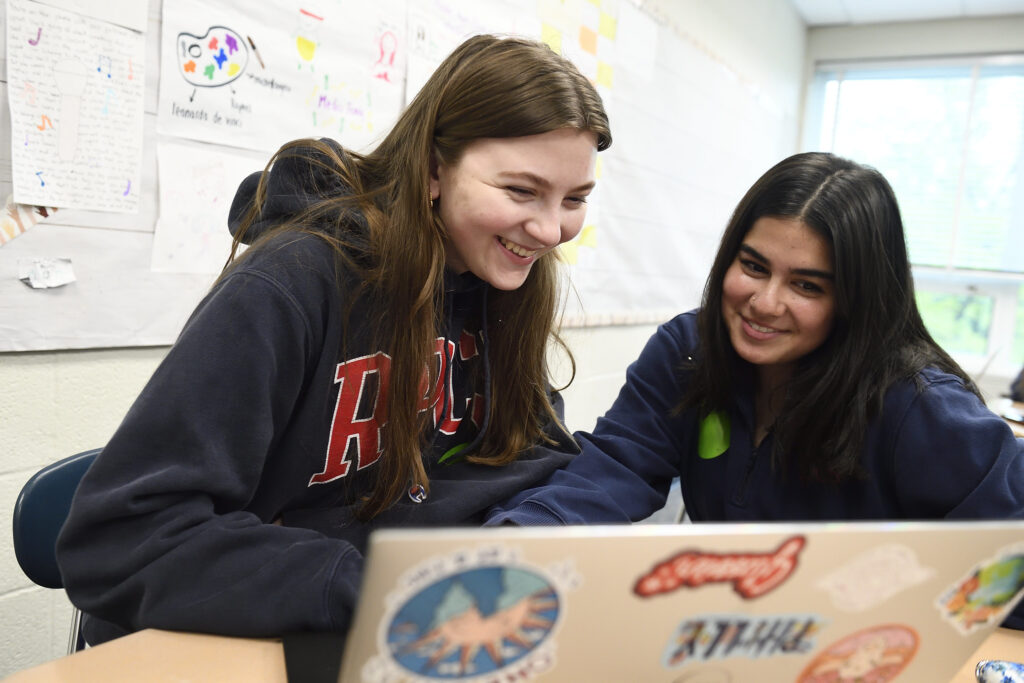
Eva, 15, learned a lot of new things this year as part of Changemakers, notably the challenges many adolescents around the world face in trying to access health services or meet a need as basic as menstrual care. Through the course, she was introduced to young women like Sneha, whose desire to finish school, become a police officer and live independently led her to join a women’s initiative in her village outside New Delhi, India, to produce sanitary pads.
In India, where women of reproductive age number 353 million, menstruation can prevent girls from attending school because they don’t have the means or products to properly manage their period. Sanitary napkins may be too expensive for a family. And changing home-made cloths in a school setting proves embarrassing.
“One of my favorite parts of this class was learning about real people who changed their communities. We watched a movie about girls who created a pad machine in India, and hearing their story and how much they learned and the impact they made was so inspiring,” says Eva, referencing the Oscar-winning Netflix documentary Period. End of Sentence.
The documentary and The Pad Project were developed by a group of girls and teachers at a Los Angeles school, a private coeducational community fostering independent thinking, intellectual respect and a commitment to community—values in sync with Roland Park Country’s philosophy.
Social media can negatively affect body image by portraying “idealized” body types, but it can also be used as a tool for change. Roland Park student Eryn Balchunas created these digital illustrations for her group’s final project, an Instagram campaign to encourage a positive mindset about body image. “It’s okay for your body to look different than someone else’s. It’s okay for there to be a spectrum of what people look like,” she says. “Everything is beautiful.”
The next generation of activists
Alongside her fellow 9th graders at the all-girls school in Baltimore, MD, Eva had spent this last school year learning about issues that affect the health and well-being of women and girls around the world, culminating in this final creative activism project. Throughout the year, students learned that gender is a determinant of health; about preventable diseases like human papilloma virus (HPV) and preventable causes of maternal deaths; and how some of the most sustainable solutions to these problems are developed through design thinking and advocacy. Their final projects required the students to use the skills they learned throughout the year to develop a creative solution, draw attention to, and make a positive impact on an issue they found compelling.
“It’s been important to me to learn about how life for women is different in other places of the world, especially in developing countries,” said Eva. “Being able to have the opportunity to not only learn about it but to make our difference in the world has been amazing.”
Changemakers is a classroom curriculum envisioned by Jhpiego advisory board members Michele Brennan and Cara Moreno. Having both seen firsthand the global work of Jhpiego, they felt that high school students could gain so much from learning about Jhpiego’s unique experiences and perspectives as a leader in global public health. The dynamic, multi-media curriculum, written in partnership with Creative Visions, is rooted in Jhpiego’s decades of expertise creating successful global health programs and provides high school students the opportunity to learn these methods through projects and problem-based learning.
“Changemakers teaches students about creative activism,” Brennan told the Hub earlier this year. “This course challenges young people to look at complex problems from many different angles. Students who learn about issues in international public health can channel their energy and enthusiasm to move society forward.”
Moreno’s hope is that students enrolled in Changemakers will come away with “an understanding that while nothing separates us as individuals in the U.S. from our sisters in less developed countries, in terms of mind, body and spirit, our access to quality health care may be vastly different from theirs.
“It’s our duty to understand those differences and, through the curriculum, we invite students to explore effective approaches to reducing that gap,” Moreno said. “We also encourage further study, as well as the pursuit of causes that most inspire them, leading to actionable change, such that one day that gap may be eliminated.”
Changemakers debut
The class was first piloted at Roland Park in 2020 as a 10th grade elective course for 13 students, many of them virtual due to the school’s hybrid learning format due to COVID-19. This year, Roland Park expanded the course, making it a year-long, requirement for the more than 60 9th-grade students. “I have been surprised, both this year and last, about the knowledge gap students have when it comes to women’s health topics,” says Sarah Morehead Pope, program coordinator for the Gore Leadership Institute at Roland Park, which oversees the Changemakers curriculum at the school. “We have a robust health and wellness curriculum at our school, yet we saw that our students are not well informed. Topics like HPV, the HPV vaccine and cervical cancer, maternal mortality rates and discrimination against women across the board in medical settings seemed to really strike a chord with our students.”
“I’ve learned a lot from the Changemakers class this year,” says 15-year-old Roland Park student Eryn Balchunas. “I never really thought that I could make a difference because I’m so young, but from this class, I’ve learned how people have made change in their communities, and that shows me that it’s possible to make a difference.”
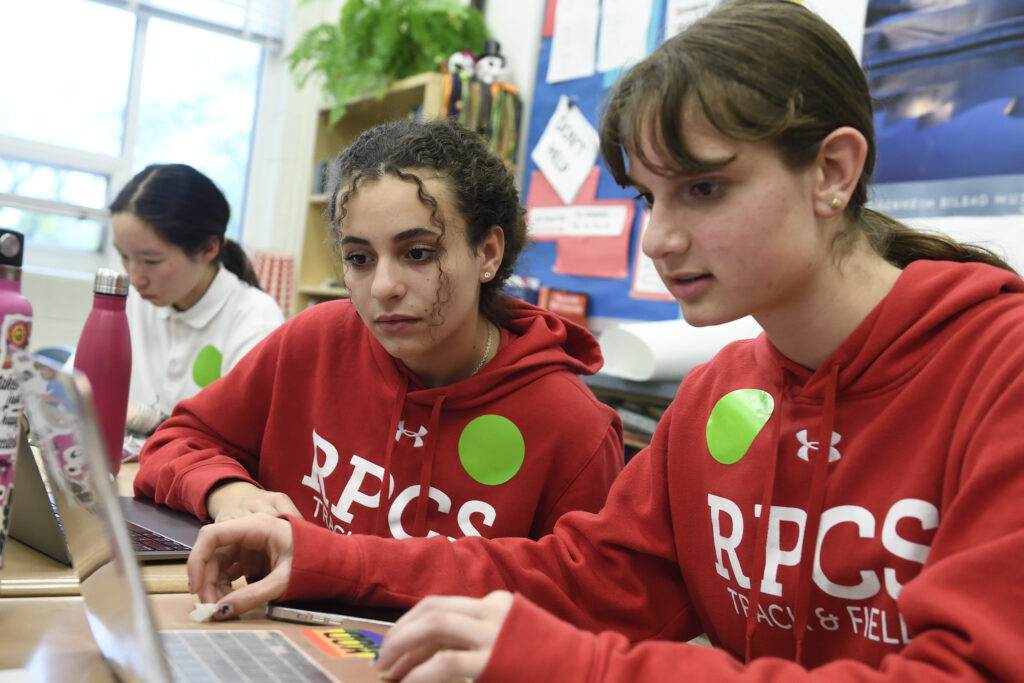
Bringing challenging conversations home
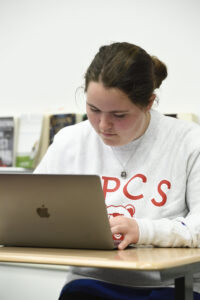
The class hasn’t just been helpful for the students—it’s also created an opening for parents to have discussions about difficult topics with their daughters. “Eating disorders, anxiety disorders, women’s trafficking—these are not easy subjects for kids to bring up with their parents. It’s heavy, even for me as an adult,” says John Antoniades, whose daughter, Lilly, took the class this year. “They’re becoming teenagers and they don’t necessarily want to talk to us about things like that, but this class has brought those conversations home.”
For 16-year-old Caroline Kelly, the class opened a door to very personal conversations with a close family member about intimate partner violence. For her final project, she decided to write a poem and create an infographic detailing the many aspects of intimate partner violence, drawing on resources from organizations like Becky’s Fund and the OneLove Foundation. “This is personal to me,” says Caroline. “I’ve learned more about [my family member’s] experience, and how it’s not just a physical thing, that it can also be financial, verbal, emotional and more. Through this project, I’ve really learned how important it is to advocate for yourself and your mental health.”
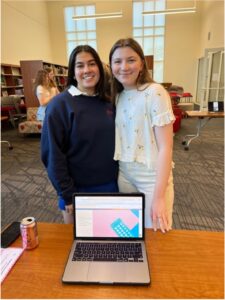
In May, Roland Park held a showcase to give the students a chance to show off their final projects to their parents and peers. In the school’s library, each group of students had their own station where they gave brief presentations about their projects and what they learned. Eva and her project partner, Talya Kohan-Gaffar, displayed their website on a laptop.
“I feel really proud of what we’ve achieved,” said Eva. “I’m hoping to continue this in the rest of high school because I think I’ve found something I’m really passionate about.”




